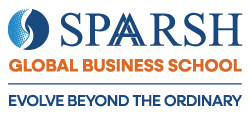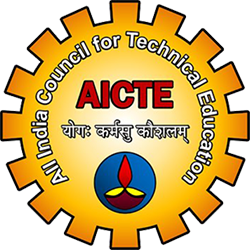
Immerse yourself in the ever-changing world of PGDM, where each choice influences your career path. Learn relevant things about improving your leadership skills, understanding market trends, global perspectives, collaboration and more. Prepare yourself to navigate this vibrant terrain of management. Let's dive headfirst into this career possibility, exploring the PGDM career tracks and all the avenues for success.
What is PGDM?
PGDM is an independent Indian institution's demanding management programme with an emphasis on the professional sector. A PGDM, in contrast to an MBA, is a certificate bestowed by independent business schools rather than colleges or universities. Students enrolled in PGDM programmes have both academic grounding and hands-on experience in a wide range of management functions, including accounting, marketing, human resources, operations, and strategy, as well as experience through industry exposure, which equip them for careers as corporate executives.
Benefits of PGDM
A PGDM can open several doors for you. Gaining this level of expertise in business administration may do wonders for your professional life. The abilities of analysis, leadership, collaboration, critical thinking and problem-solving are few of the skills nurtured in postgraduate diploma programmes. Professional contacts are broadened through networking events with prominent figures in the industry. Curriculum flexibility offers customisation to meet professional aspirations and industrial needs.
Futuristic Prospects for Traditional & New Age Career
PGDM programmes provide graduates in a variety of sectors with conventional and innovative employment choices. There are still good options in more conventional fields like accounting, marketing, finance and human resources, but there are also exciting prospects in new-age fields like artificial intelligence (AI), data analytics, blockchain, big data, AR, VR and the like. PGDM holders can succeed in corporate, entrepreneurial, consulting and other fields with leadership and innovative abilities. A bright future in the ever-changing work market is assured as they negotiate through dynamic career landscapes, drive organisational success and adapt to emerging technologies.
Exploring a Spectrum of Career Opportunities
Many different job opportunities become available to those who get a Postgraduate Diploma in Management (PGDM). Finance, marketing and human resources are still popular choices, but many are looking for more modern alternatives. You can find promising opportunities in sectors including fintech, sustainability management, data analytics, AI and digital marketing. New opportunities exist in rapidly developing fields such as renewable energy, PGDM supply chain management and artificial intelligence. Graduates of PGDM are well-equipped to take on challenging careers in a variety of fields since they can think critically, creatively and pragmatically alongside being well versed in modern-day skills.
Guidance for Choosing a Perfect Institution
When selecting an institution for a PGDM programme, prioritise accreditation, such as AICTE-approved PGDM courses, to ensure quality and recognition. Research faculty expertise, industry connections, and alumni success gauge practical relevance of a course and industry connects of the institution. Evaluate curriculum flexibility, internship opportunities, dual credits and elective choices for tailored learning. Consider campus facilities, location, internship opportunities and extracurricular activities for a holistic experience. Attend informational sessions, interact with current students and seek feedback from alumni to gain insights into the institution's culture and support system.
Engaging with Industry Experts for Insight and Growth
Interacting with professionals in the field is a must for PGDM students to get growth-promoting insights. Working one-on-one with seasoned experts and corporate mentors allows students to get insight into the latest industry trends, challenges and global best practices. Engaging in these encounters provides a hands-on grasp of real-life situations, enhancing academic knowledge with practical experience. Students may enhance their professional growth and prepare for the ever-changing business landscape via networking with specialists, who can offer mentoring, career assistance and possible internship or job placement opportunities.
Conclusion
Embark on an exciting adventure into the world of PGDM at Sparsh Global Business School, an AICTE-approved PGDM, where each choice influences your professional future. Students learn leadership and market dynamics through rigorous academics and hands-on experience. SGBS prepares graduates for an ever-changing professional world by preparing learners for multiple career options and embracing new sectors like AI, AR, VR and more. Sparsh Global Business School helps students become ready for the ever-changing management field by providing them with advice from professionals in the field and individualised learning experiences.
FAQ’s
1. What is the difference between PGDM and MBA?
Unlike an MBA, independent Indian colleges offer PGDM management programmes that focus on the professional sector. Both PGDM and MBA cover accounting, marketing, human resources, and strategy, but PGDM programmes are noted for their hands-on approach, real-time experiential learning, alongside academic grooming in management activities. Universities award MBAs, whereas business schools grant PGDMs. PGDM programmes also provide additional curricular flexibility and customisation, allowing students to adapt their learning as per their interests and passions.
2. What are the benefits of pursuing a PGDM?
A PGDM can boost your career. These programmes teach business-valued skills, including critical analysis, leadership, collaboration and problem-solving. PGDM programmes also offer networking chances with industry leaders, extending professional relationships and career opportunities. The flexible curriculum lets students explore their interests and adapt to industry developments, improving their competitiveness for the job market.



